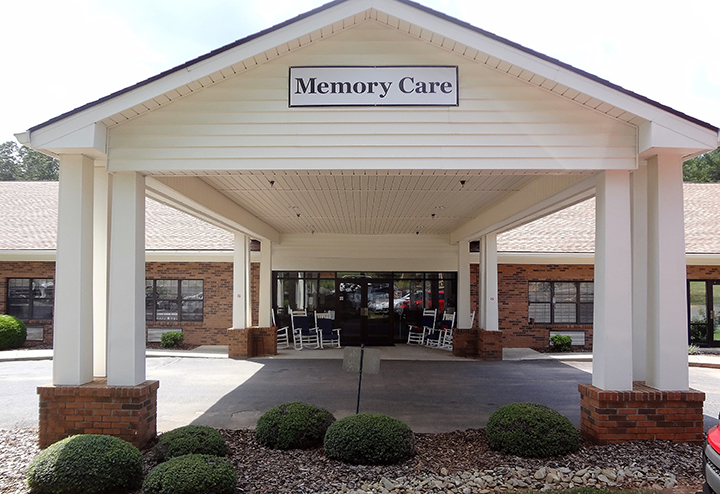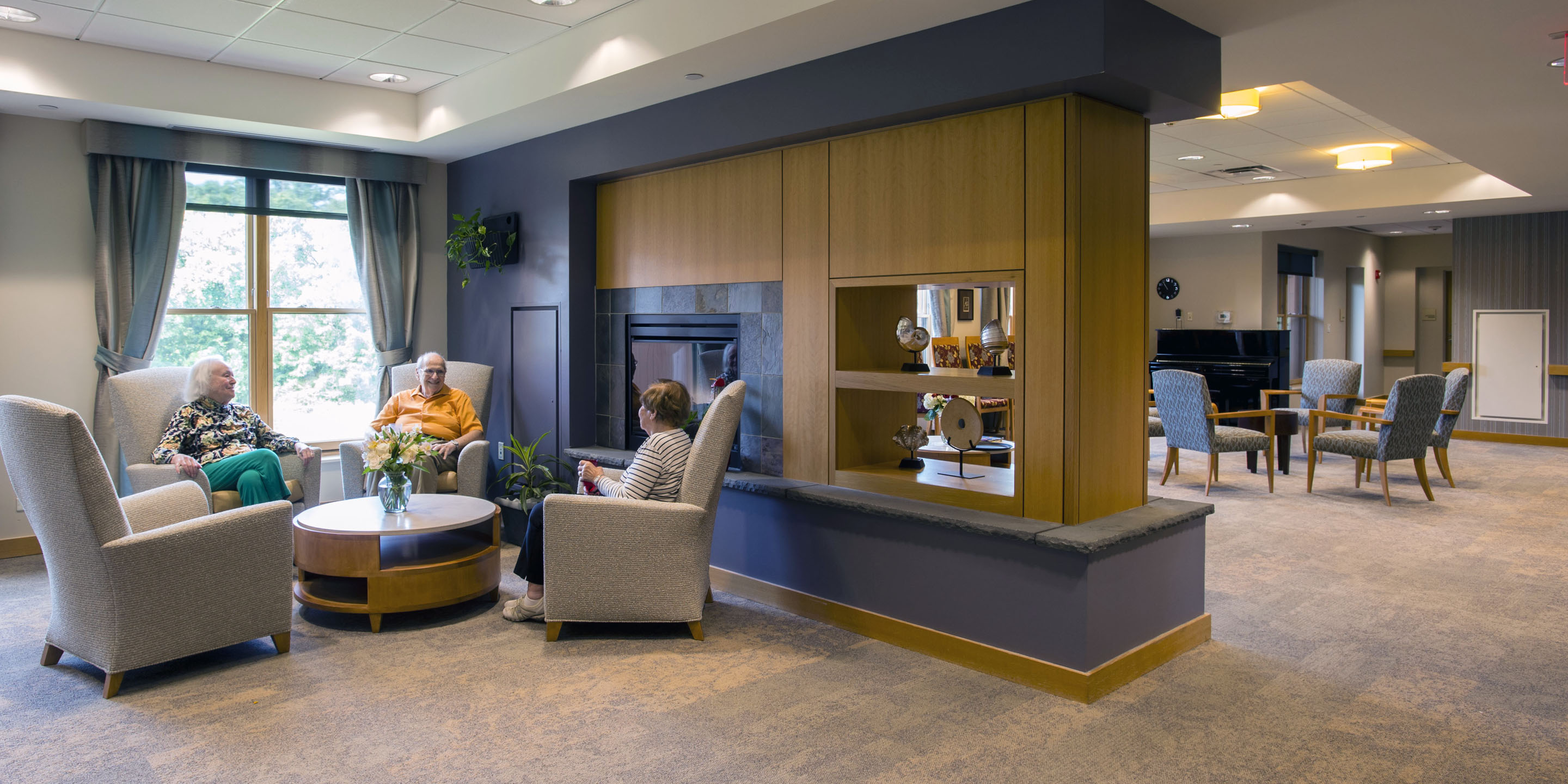Discover Memory Care Charlotte: Compassionate Support for Seniors
Wiki Article
Involving Activities in Memory Treatment: Enhancing Well-being in your home
In the world of memory treatment, the relevance of interesting tasks can not be overemphasized. These activities offer as a cornerstone in boosting the total health and wellbeing of individuals living with memory disabilities.Benefits of Involving Tasks
Involving tasks play an essential role in improving cognitive function and emotional wellness in people receiving memory treatment at home. These tasks are designed to stimulate the mind, motivate social communication, and give a feeling of objective for those experiencing amnesia. By taking part in tasks such as problems, reminiscence treatment, music therapy, and art jobs, individuals can enhance their cognitive abilities, memory retention, and general high quality of life.One significant advantage of engaging tasks is the positive impact they have on cognitive feature. Tasks that test the brain, such as word games or mind intros, help improve memory, focus, and problem-solving abilities. This psychological stimulation is important for people with memory problems as it can slow down cognitive decline and boost mind function.
Furthermore, involving tasks likewise promote emotional wellness by minimizing feelings of seclusion and clinical depression. Joining group activities or individually sessions with caretakers can boost mood, boost self-confidence, and produce a feeling of belonging. These psychological benefits are vital for maintaining a favorable outlook and general mental health in individuals getting memory care in your home.
Developing a Sensory Experience

Integrating sensory experiences can be attained via numerous tasks. Visual stimulation can be given with vivid items, artwork, or nature scenes. Playing acquainted music or audios can trigger reminiscence and develop a soothing environment. Responsive activities such as distinctive objects or products can promote sensory exploration and stimulate the sense of touch. Additionally, incorporating familiar fragrances like lavender or fresh baked cookies can stimulate favorable memories and sensations of convenience.
Incorporating Familiar Leisure Activities
Including acquainted leisure activities into memory care activities at home can supply a sense of continuity and happiness for people with memory impairments. Involving in tasks that people have actually appreciated throughout their lives can evoke favorable emotions, promote memories, and foster a feeling of success. Whether it's paint, knitting, horticulture, or playing a musical tool, familiar pastimes offer a meaningful and reassuring means for individuals with memory challenges to get in touch with their past selves and maintain a sense of identification.By incorporating familiar hobbies into everyday routines, caregivers can create a sense of normalcy and objective for their enjoyed ones. These activities not only serve as a resource of home entertainment yet additionally aid in decreasing stress and anxiety, enhancing state of mind, and advertising cognitive feature. Furthermore, engaging in familiar leisure activities can trigger discussions, urge social communications, and improve general wellness.
Caregivers must adapt these pastimes to suit the individual's existing capabilities and interests, making certain a risk-free and satisfying experience. Providing the required assistance and support, caretakers can assist people with memory disabilities remain to discover satisfaction and joy with their preferred leisure activities.
Songs and Memory Link
The relationship in between songs and memory is a well-documented and effective phenomenon, showing significant effects on cognitive function and emotional well-being. Memory Care Charlotte. In the context of memory care, leveraging this link can be a beneficial important link device in boosting the lifestyle for individuals coping with memory impairmentsMusic has an unique capability to stimulate emotions and memories from the past, even in people with advanced stages of mental deterioration. Paying attention to familiar songs or joining songs treatment sessions can promote neural pathways related to memory and feeling, boosting and triggering memories state of mind. Furthermore, involving with music can help minimize frustration, stress and anxiety, and anxiousness commonly experienced by individuals with cognitive decrease.
Caregivers and relative can incorporate music into daily routines by producing customized playlists of precious tracks, arranging sing-along sessions, or motivating individuals to play musical instruments. By incorporating music into memory treatment activities, it is possible to produce significant experiences that promote cognitive stimulation, emotional connection, and total well-being in individuals with memory disabilities.
Mind-Boosting Gamings

Games like crossword puzzles, Sudoku, memory matching video games, and facts quizzes are preferred selections for individuals in memory care. These tasks not just supply entertainment but likewise provide a structured way to work out the brain. Additionally, video games that involve method and crucial reasoning, such as chess or card games, can assist boost cognitive skills and reasoning capabilities.
In addition, these mind-boosting video check out this site games can have a favorable effect on mood and emotional wellness. Taking part in delightful tasks and experiencing success in solving troubles or completing difficulties can enhance confidence and self-esteem. On the whole, integrating mind-boosting games right into a memory treatment regimen can contribute considerably to the total quality of life for individuals with memory disabilities.
Final Thought
Finally, involving tasks in memory care play an important role in boosting health and wellbeing at home. By producing sensory experiences, integrating familiar leisure activities, checking out the songs and memory connection, and participating in mind-boosting video games, individuals can enhance their cognitive capacities and overall lifestyle. These tasks provide mental stimulation, social interaction, and a sense of objective, ultimately causing a much more satisfying and improving experience for those living with memory disabilities.Building on the structure of cognitive and emotional advantages obtained from involving activities, the incorporation of sensory experiences can better improve the well-being of individuals receiving memory care visit this site at home. For individuals with memory problems, sensory tasks can evoke memories, lower anxiousness, and boost overall state of mind.
Integrating acquainted pastimes right into memory care tasks at home can provide a feeling of continuity and delight for individuals with memory impairments.Gamings like crossword puzzles, Sudoku, memory matching games, and facts tests are preferred choices for individuals in memory care. Overall, incorporating mind-boosting video games right into a memory treatment routine can contribute significantly to the total quality of life for people with memory impairments.
Report this wiki page